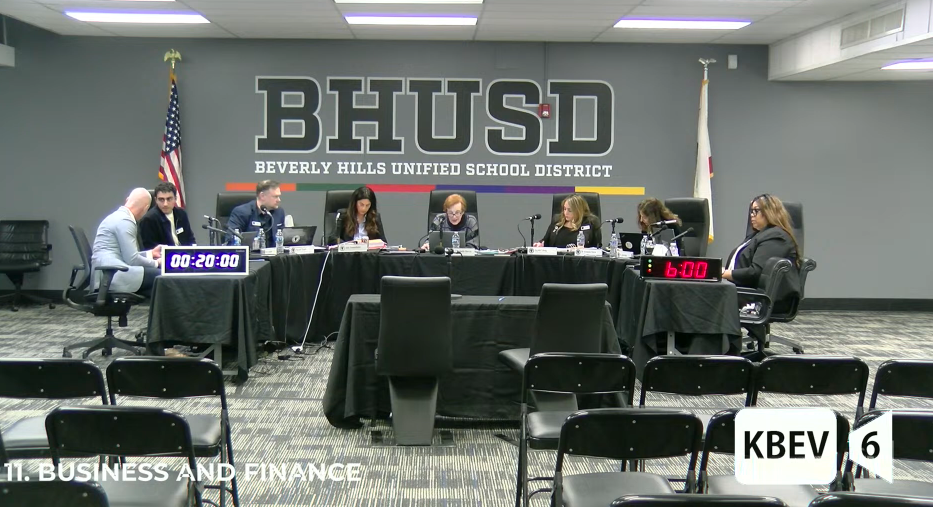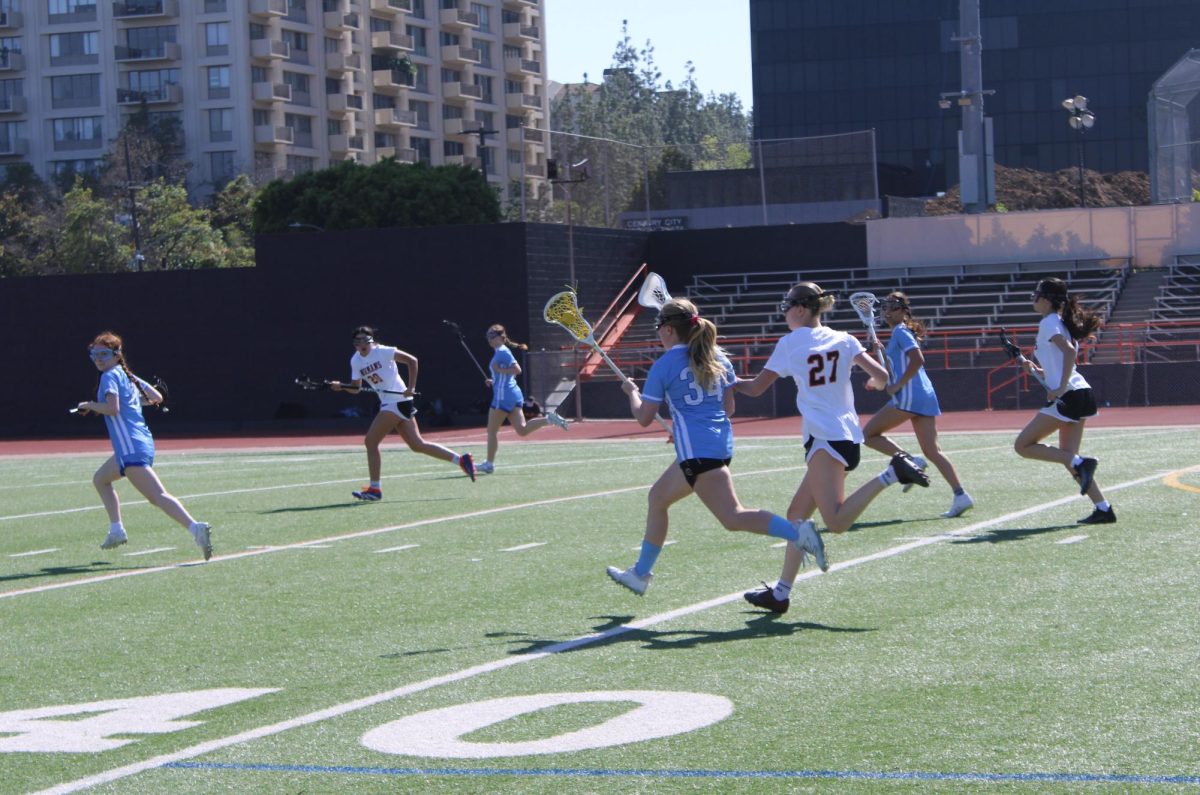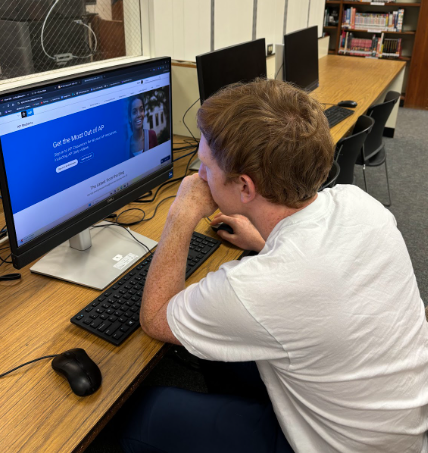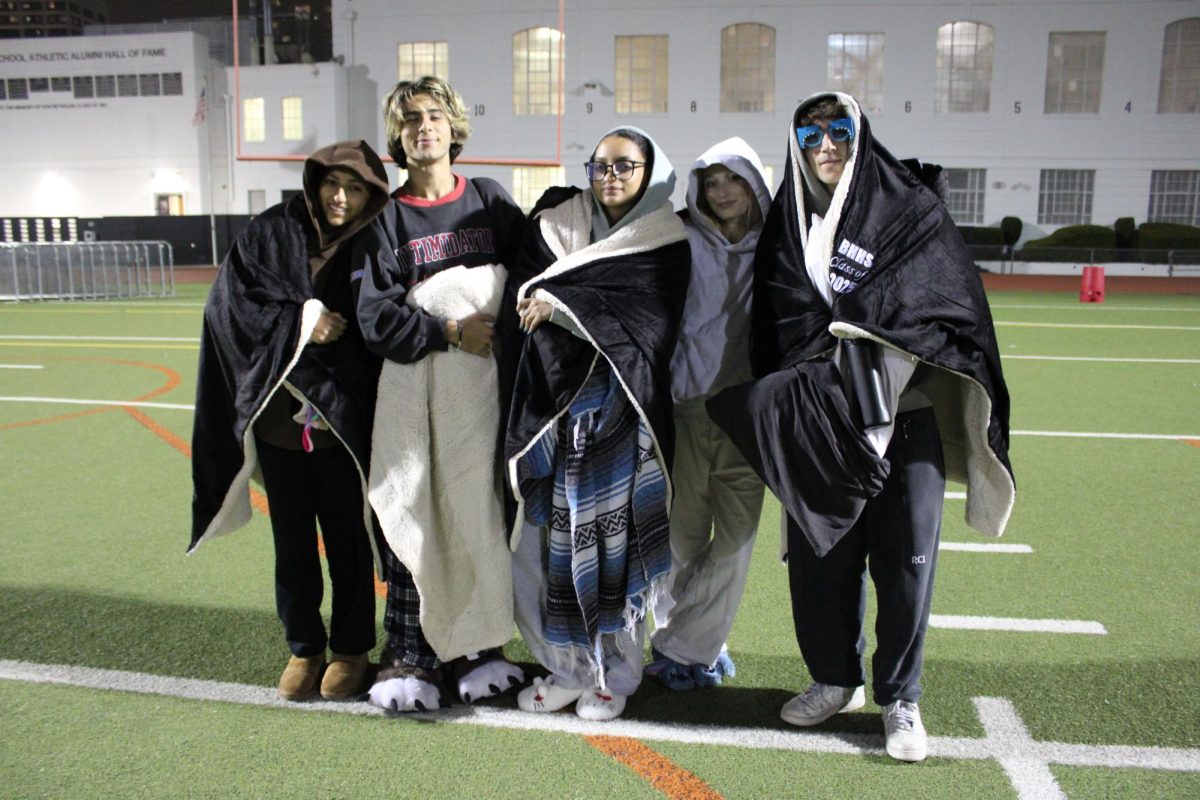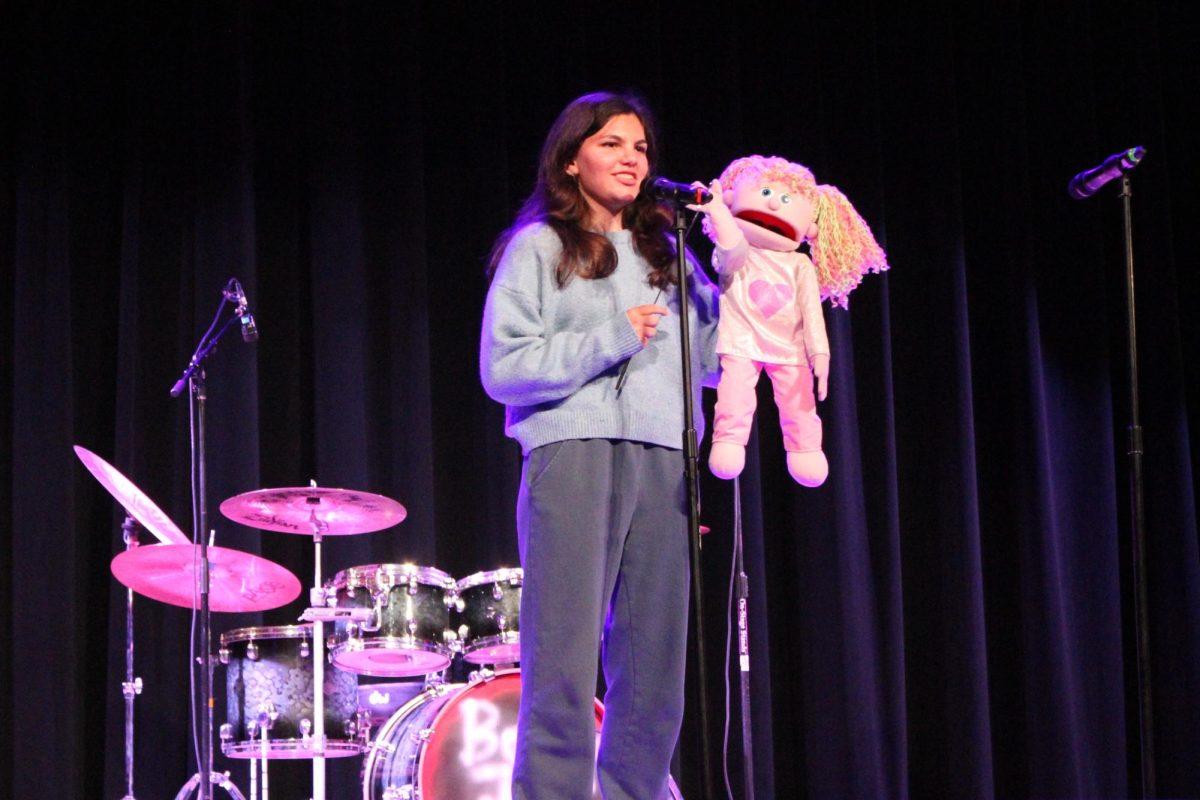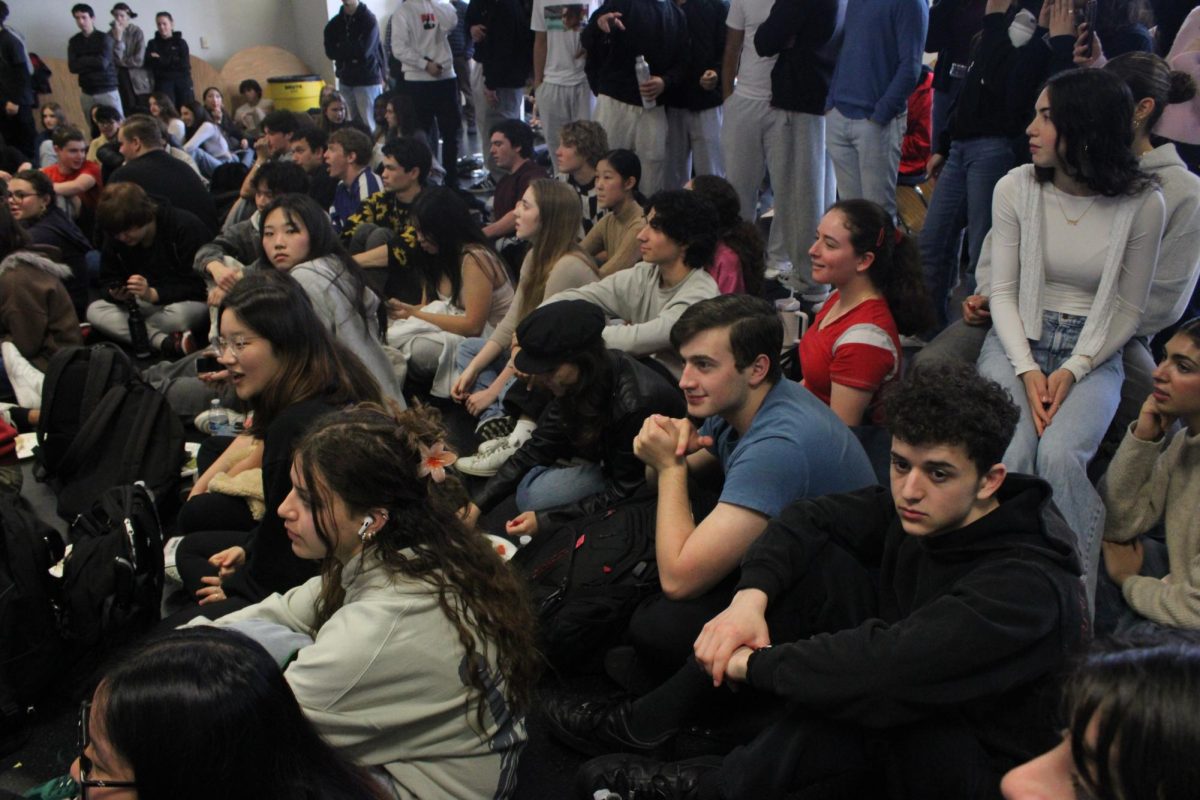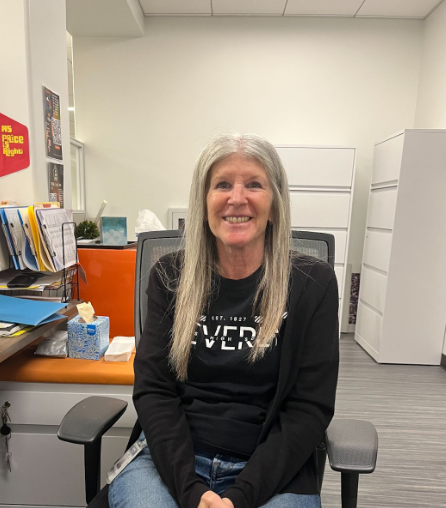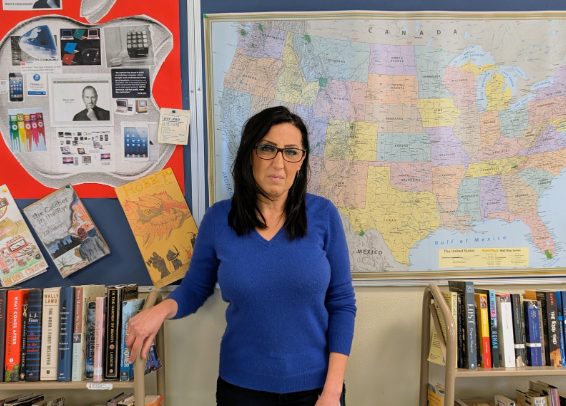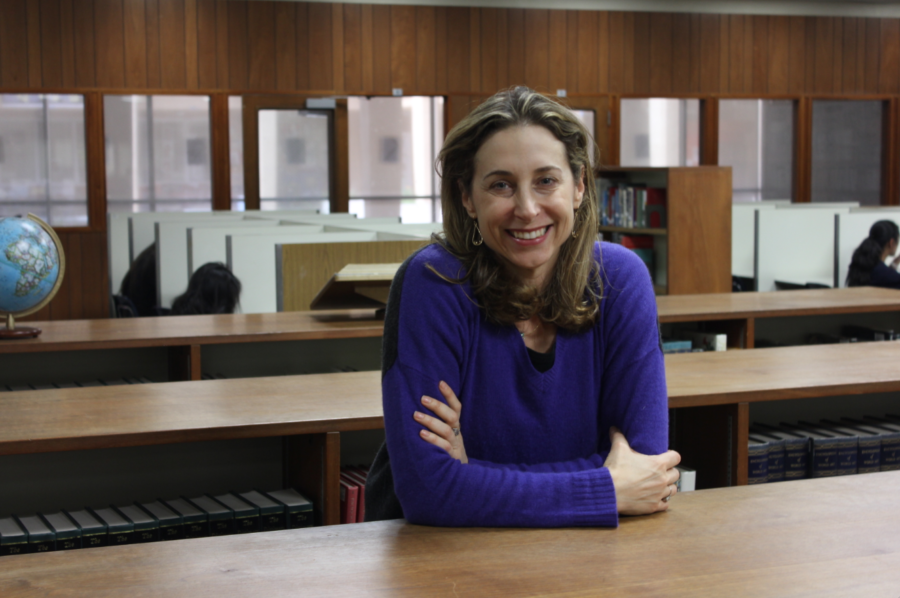As seen in the March 28 print edition
Danny Licht, editor-in-chief
When English teacher Julie Goler first learned that she was going to be sent to Siberia, she “got a little teary.”
“Wasn’t Siberia where they sent criminals?” she said. “How could I possibly be going there?”
She applied last year for a program with IREX, an international nonprofit organization that supports educators, journalists and community leaders, and along with 71 other teachers from across the country, she was accepted. Cumulatively, the teachers are going to six countries for two weeks each, some during the school year and some during the summer.
In total, 12 teachers will be going to Russia and starting in Moscow.
“In Moscow we’ll meet with ministers of education, visit schools, just kind of calibrate what we’re doing in the country, and then they divide us up all over the whole country, and some people are flying 12 hours to the eastern side of Russia, which is really close to China,” she said. “I’m going to be in central Siberia, close to Kazakhstan and Mongolia, and I’ll be looking at schools and doing some teaching, meeting some teachers, learning the culture.”
And even for a frequent “deep-end” traveler, a term she likes to use, the preconceptions of Siberia (whiteness, barrenness, Gulags) were daunting.
“But then I started reading about the area,” she said. “It’s beautiful. It’ll be really beautiful. It’s right next to a mountain range. I think it’s [near] the deepest lake in the world and the oldest lake in the world. They’re taking us to the mountains for the one weekend that we’re there. They’re taking us to villages where we’ll have meals….It’s a really cool, once-in-a-lifetime opportunity.”
Goler was asked to bring gifts for the schools she’ll be visiting, and the Beverly community has been helping her out.
“Jarvis Turner gave me a bunch of basketball jerseys, Marla Weiss gave me volleyball stuff, BHEF gave me some really good T-shirts. I wanted to bring things that said Beverly Hills High School on them,” she said. “I thought it would be cool, although my Russian kids are saying no, they don’t want stuff like that, but I’m gonna go with my instinct.”
On the trip, she’s most interested in learning about Russia’s education culture and comparing it with our own.
“My understanding is that Russia was the country that originated the idea of cooperative group work…so I’m kind of excited to see if they’re still doing that,” she said. “They were into collaboration and group stuff, which makes sense if you know your history. They were doing it much before we were, so we’ll see what that looks like. I’m going to be in an English-speaking school; I’ll be teaching classes, and we’ll be meeting with English teachers. I have one meeting where I sit down with the leaders of my school and we discuss the differences in our educational styles, what we’re doing in our schools versus what they’re doing in their schools. One thing that I know for sure is their schools go from kindergarten to high school, all in one building, so it might a small school, 500 kids in one building, from ages six to 18. That’ll be interesting to see, how the seniors are interacting with the little ones.”
In addition, she’ll be keeping in touch with her students while she’s away.
“Part of the requirements of the program is that I have to blog,” she said. “The program has been awesome about giving us technology tools. One of the things they want us to walk away with is collaborating with other schools in other countries once we get back here, actually using Skype in our teaching, or I can be teaching ‘Hamlet’ and a teacher in Russia can be teaching ‘Hamlet’ and then we can have collaborative classes. We’re not quite ready for that [at Beverly], but we’re close. I think we can do it within the next couple of years, and I have the tools to do it now.”
In addition to teaching and learning, Goler is hoping to gather ideas for a future class on foreign literature.
“I used to teach ethnic literature and I was interested in global literature, so I’m interested in bringing back a program like that to the high school, and hopefully next year I will.”
She understands the culture shock may be jarring, but she feels prepared.
“I think it’s going to be a great shot in the arm in every way.”
You can follow her blog at
beyondbordersblackboard.blogspot.com.
“Wasn’t Siberia where they sent criminals?” she said. “How could I possibly be going there?”
She applied last year for a program with IREX, an international nonprofit organization that supports educators, journalists and community leaders, and along with 71 other teachers from across the country, she was accepted. Cumulatively, the teachers are going to six countries for two weeks each, some during the school year and some during the summer.
In total, 12 teachers will be going to Russia and starting in Moscow.
“In Moscow we’ll meet with ministers of education, visit schools, just kind of calibrate what we’re doing in the country, and then they divide us up all over the whole country, and some people are flying 12 hours to the eastern side of Russia, which is really close to China,” she said. “I’m going to be in central Siberia, close to Kazakhstan and Mongolia, and I’ll be looking at schools and doing some teaching, meeting some teachers, learning the culture.”
And even for a frequent “deep-end” traveler, a term she likes to use, the preconceptions of Siberia (whiteness, barrenness, Gulags) were daunting.
“But then I started reading about the area,” she said. “It’s beautiful. It’ll be really beautiful. It’s right next to a mountain range. I think it’s [near] the deepest lake in the world and the oldest lake in the world. They’re taking us to the mountains for the one weekend that we’re there. They’re taking us to villages where we’ll have meals….It’s a really cool, once-in-a-lifetime opportunity.”
Goler was asked to bring gifts for the schools she’ll be visiting, and the Beverly community has been helping her out.
“Jarvis Turner gave me a bunch of basketball jerseys, Marla Weiss gave me volleyball stuff, BHEF gave me some really good T-shirts. I wanted to bring things that said Beverly Hills High School on them,” she said. “I thought it would be cool, although my Russian kids are saying no, they don’t want stuff like that, but I’m gonna go with my instinct.”
On the trip, she’s most interested in learning about Russia’s education culture and comparing it with our own.
“My understanding is that Russia was the country that originated the idea of cooperative group work…so I’m kind of excited to see if they’re still doing that,” she said. “They were into collaboration and group stuff, which makes sense if you know your history. They were doing it much before we were, so we’ll see what that looks like. I’m going to be in an English-speaking school; I’ll be teaching classes, and we’ll be meeting with English teachers. I have one meeting where I sit down with the leaders of my school and we discuss the differences in our educational styles, what we’re doing in our schools versus what they’re doing in their schools. One thing that I know for sure is their schools go from kindergarten to high school, all in one building, so it might a small school, 500 kids in one building, from ages six to 18. That’ll be interesting to see, how the seniors are interacting with the little ones.”
In addition, she’ll be keeping in touch with her students while she’s away.
“Part of the requirements of the program is that I have to blog,” she said. “The program has been awesome about giving us technology tools. One of the things they want us to walk away with is collaborating with other schools in other countries once we get back here, actually using Skype in our teaching, or I can be teaching ‘Hamlet’ and a teacher in Russia can be teaching ‘Hamlet’ and then we can have collaborative classes. We’re not quite ready for that [at Beverly], but we’re close. I think we can do it within the next couple of years, and I have the tools to do it now.”
In addition to teaching and learning, Goler is hoping to gather ideas for a future class on foreign literature.
“I used to teach ethnic literature and I was interested in global literature, so I’m interested in bringing back a program like that to the high school, and hopefully next year I will.”
She understands the culture shock may be jarring, but she feels prepared.
“I think it’s going to be a great shot in the arm in every way.”
You can follow her blog at
beyondbordersblackboard.blogspot.com.




